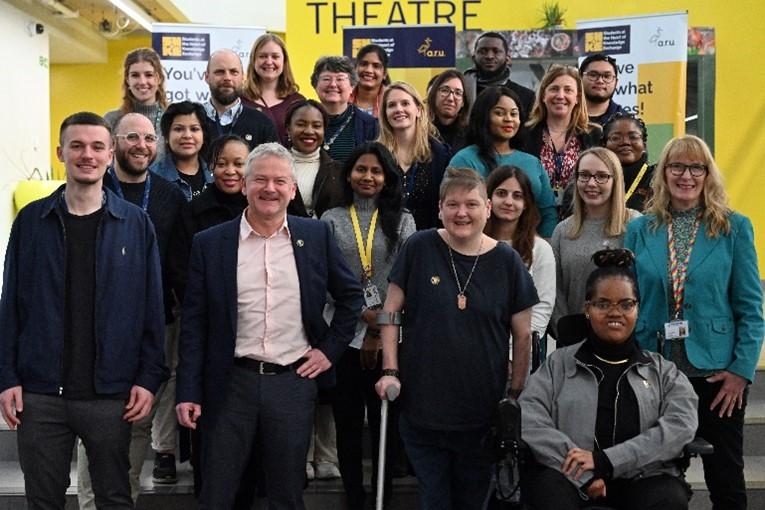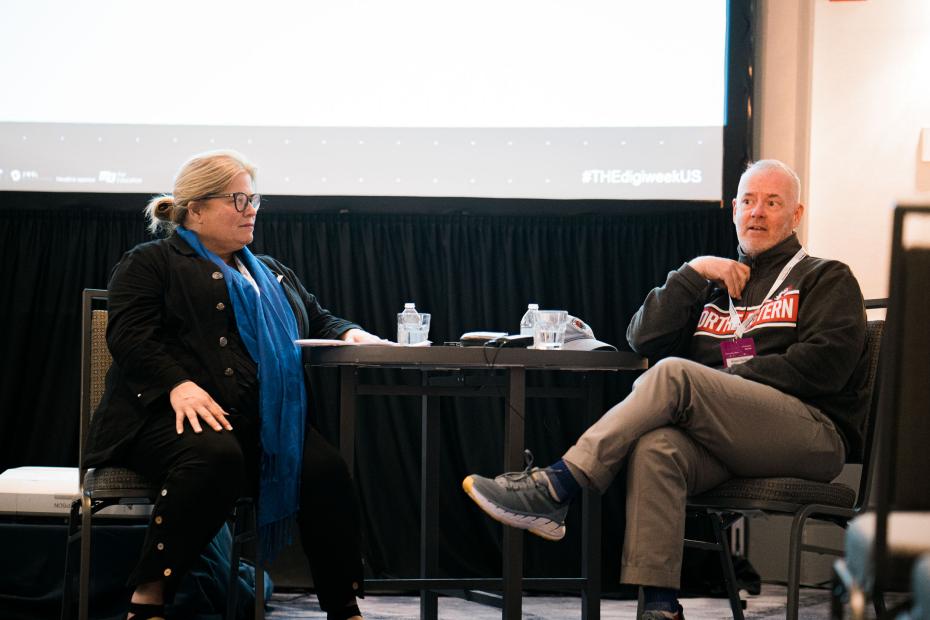
Four tips for setting up a fast-track accountancy degree programme

You may also like
Accountancy and finance have long had issues when it comes to social mobility. But, encouragingly, more effort is being made to explore and understand the barriers that stop young people from diverse or lower socio-economic backgrounds accessing roles in these professions in the UK. More importantly, there is a desire to craft effective strategies that enable school leavers to not only enter finance and accountancy professions, but to progress into the top roles.
Students are also seeking more adaptable ways to engage with higher education, whether due to personal, professional or geographical circumstances. In response, the number of degrees that provide a viable alternative to the traditional three-year degree pathway is growing.
- Spotlight guide: THE Awards 2024: learn from the best in UK and Irish higher education
- Partnering with industry for authentic experiences and assessment
- Industry connections and soft skills are key to producing employable students
We’re fostering strategic partnerships between academia and potential employers to offer such alternatives at Queen Mary, University of London. One example is the Flying Start degree programme (BSc Accountancy), a collaboration between the university, PricewaterhouseCoopers (PwC) and the Institute of Chartered Accountants in England and Wales (ICAEW).
The Flying Start degree programme has been celebrated as a fast-track pathway to becoming an ACA qualified chartered accountant and has resulted in three cohorts of the BSc Accountancy degree programme. The programme attracts outstanding students who are willing to follow a pathway to professional growth, who demonstrate a great commitment to developing their knowledge and who are eager to gain employability skills. It provides students from lower-income families with a £10,000 bursary, split across the four years of the degree, and provides all students with the opportunity to earn while they learn, helping reduce their financial burden.
Strategic partnerships such as the Flying Start degree programme offer broader benefits to both universities and business. They are essential for expanding access to education, helping more people from different backgrounds enter professions such as accountancy and finance, and enriching students’ learning experience. And they help the university and partner organisation, because we know that diversity fosters innovation and helps us achieve the previously unthinkable.
Demand for integrated paid placement programmes like ours at Queen Mary University is growing among school leavers. To develop them, the university sector needs to engage with industry and professional bodies to build strategic partnerships. Doing so will help fill the skills gap, build a healthy workforce pipeline and encourage more people from diverse backgrounds to become accountants or finance professionals so we can diversify thinking and drive change.
Some things to consider when looking to create a programme like the Flying Start degree programme include:
- Developing an industry-relevant curriculum in collaboration with industry partners and professional bodies. Ensure it covers essential topics such as audit and assurance, taxation, business strategy, financial management, advanced financial accounting, sustainability practices and the use of artificial intelligence (AI) in financial reporting. Our programme also incorporates data analytics, digital capabilities and business case studies across all modules.
- Building strong collaborations with leading professional accountancy bodies to keep the curriculum relevant and aligned with regulatory standards. Our Flying Start programme includes a comprehensive exemption framework, comprising rigorous assessments. Upon completion of qualifying exams, students receive certificates prior to their learning and professional-level qualifications. This empowers them to fast-track their careers confidently and guarantees industry partners graduates who are equipped with the skills and knowledge to drive the organisation forward.
- Provide placement-based learning, which allows students to apply theoretical knowledge directly to practice in real-world scenarios, bringing cutting-edge knowledge and innovative solutions to business contexts.
- Providing financial bursaries so students from lower socio-economic backgrounds can join university and be supported with the day-to-day costs of university life.
Programmes like ours also benefit those delivering them. I’ve had feedback from colleagues at Queen Mary University and PwC that our programme has boosted staff motivation and upskilled existing and new staff members, both academic and administrative. In terms of my own career development, it has given me a more rounded knowledge of accounting education, compared with a traditional research-focused academic career, and has deepened my understanding of the technical skills and competencies needed to prepare students who want to work in the industry.
From a student perspective: “The PwC bursary and placements offered within the Flying Start programme have allowed me to subsidise travel costs and help with finances at home as well as take out less student finance, reducing pressure on my parents. It has also allowed me to gain new experiences through travel and growth outside of university. So far, I have completed my first year at Queen Mary University with an average of 78 per cent across all modules, completed the ACA Audit and Assurance and Tax Compliance professional exams and I’m currently an Audit Associate for the HSBC audit, where I have assisted in journals documentation.”
Ishani Chandrasekara is a professor of accounting education and programme director for the Flying Start degree programme at Queen Mary University of London. She was shortlisted in the Most Innovative Teacher of the Year category in the 2024 THE Awards. A full list of nominees can be found here. The awards will be presented at a ceremony in Birmingham on 28 November 2024.
If you would like advice and insight from academics and university staff delivered direct to your inbox each week, sign up for the Campus newsletter.


